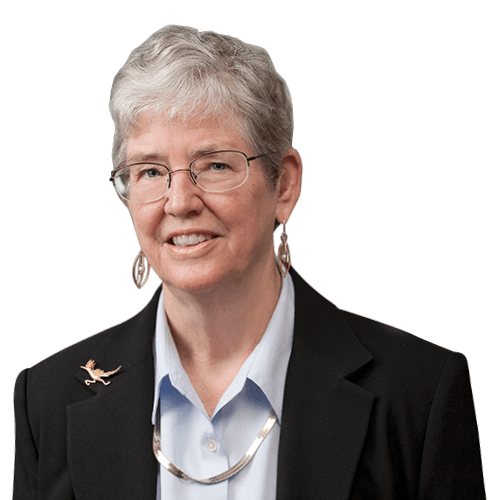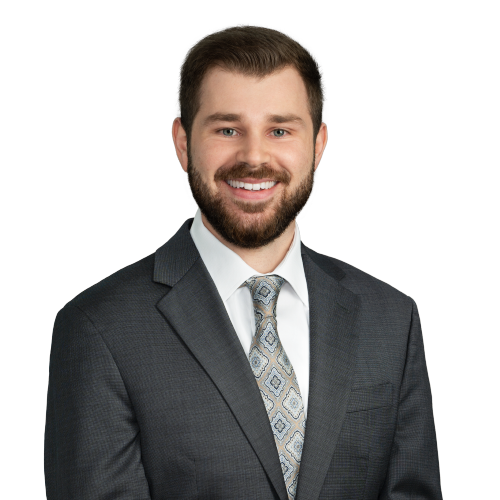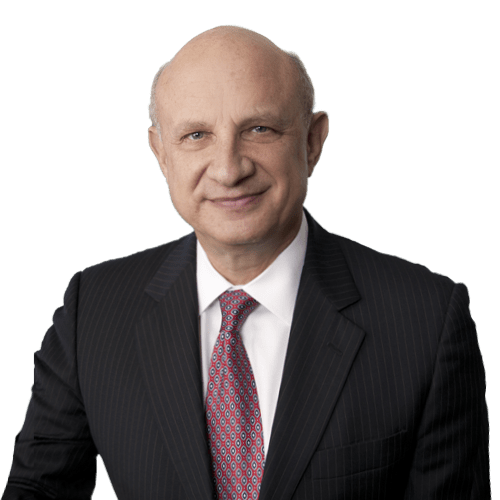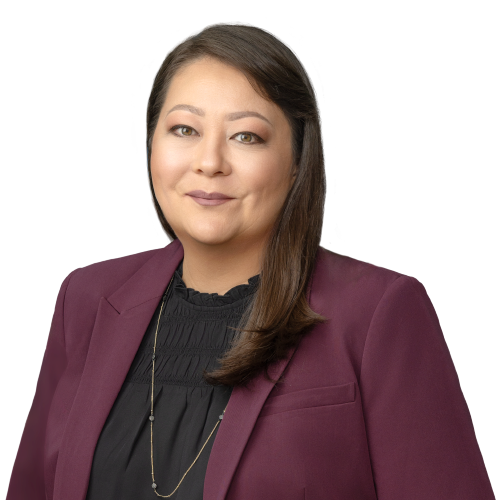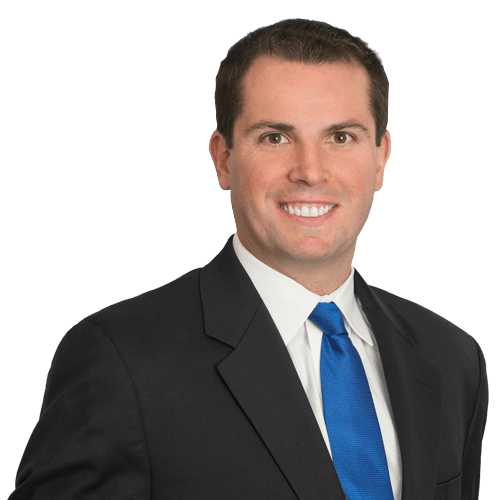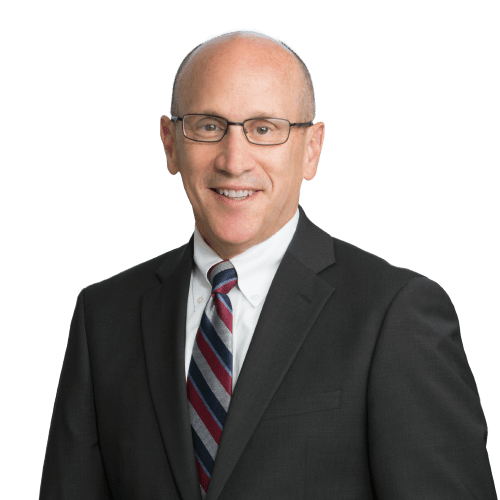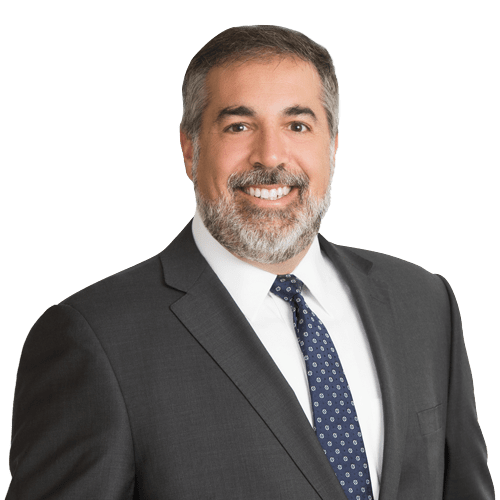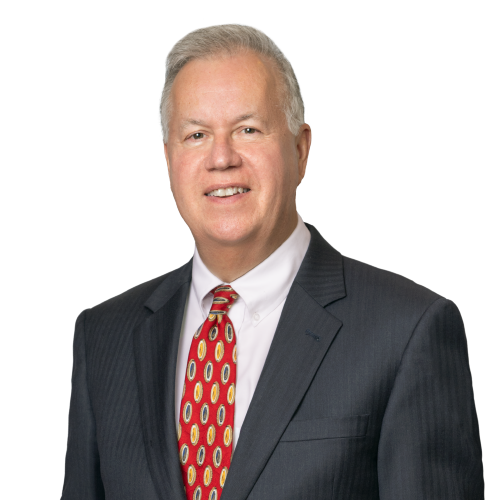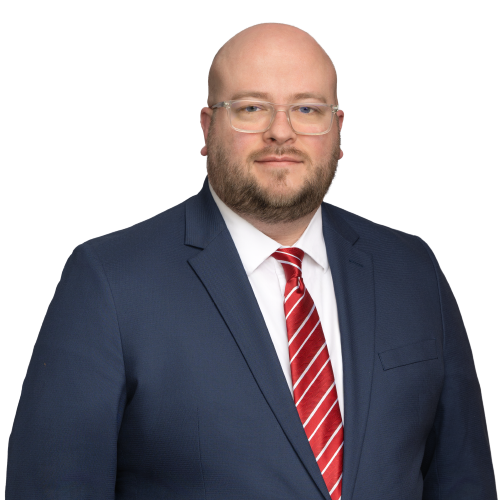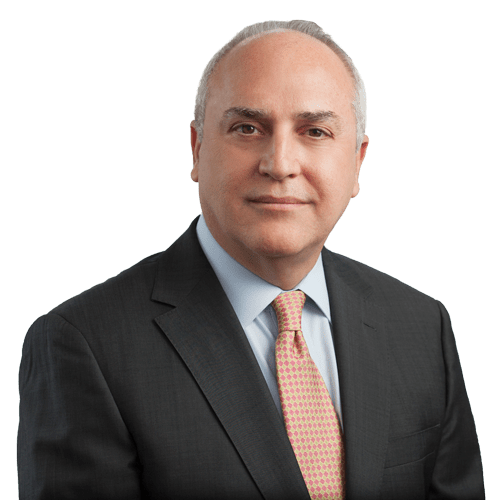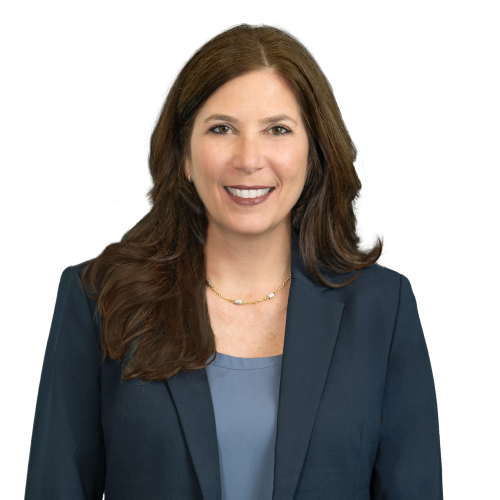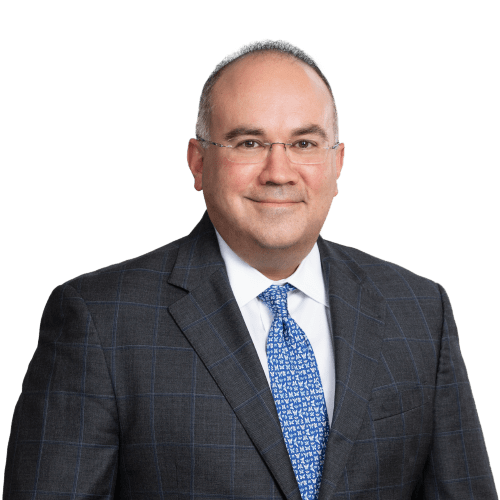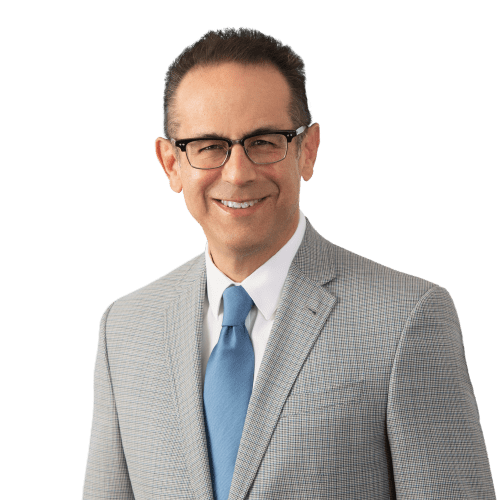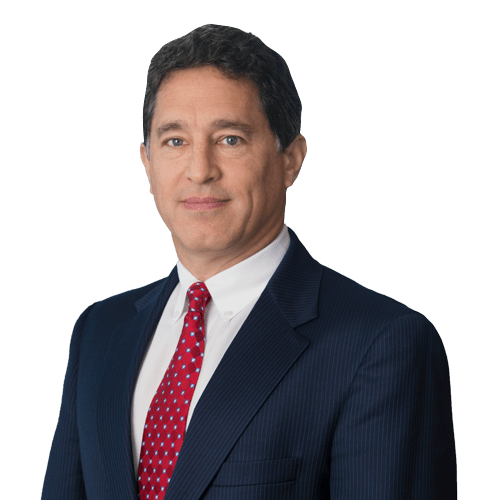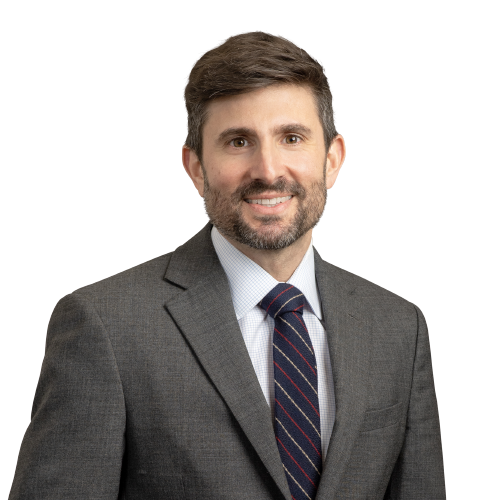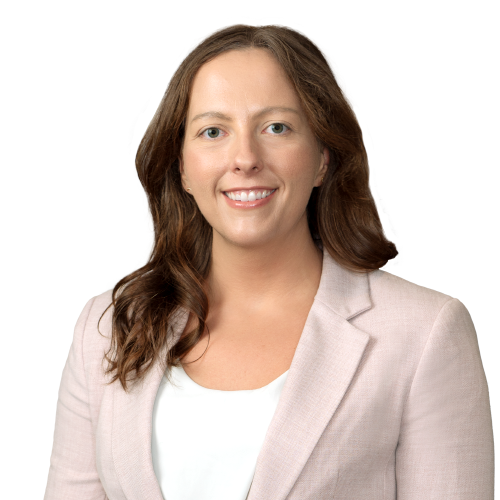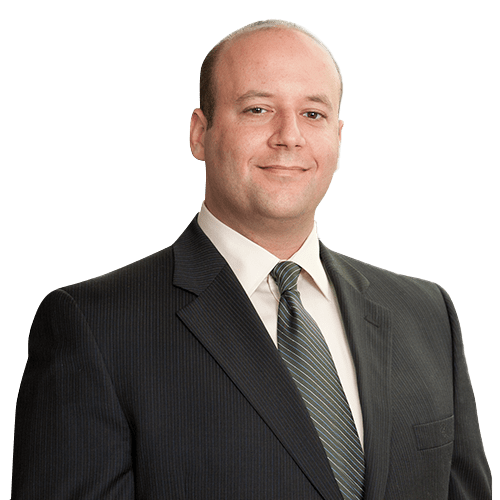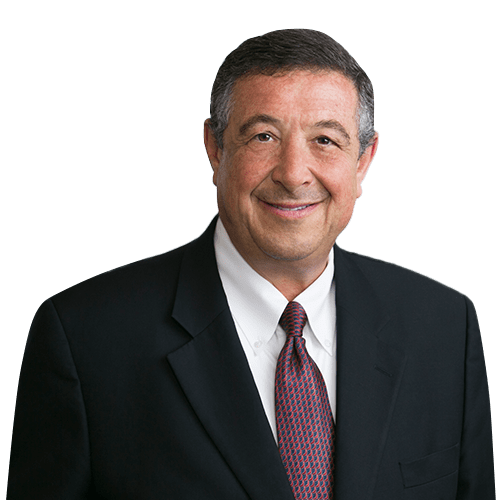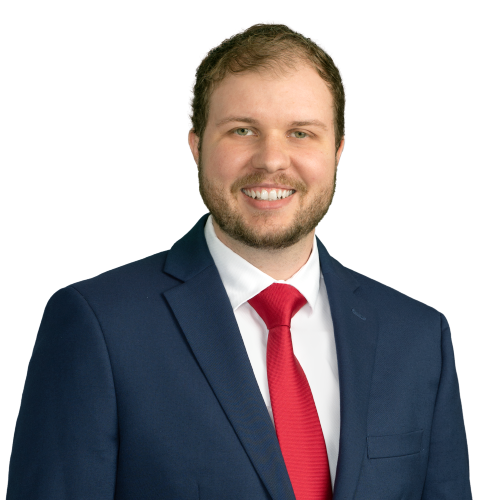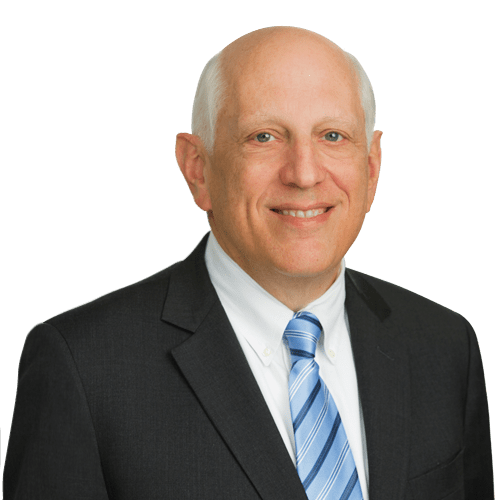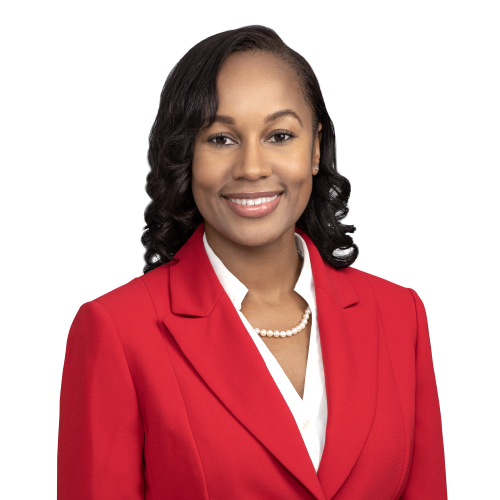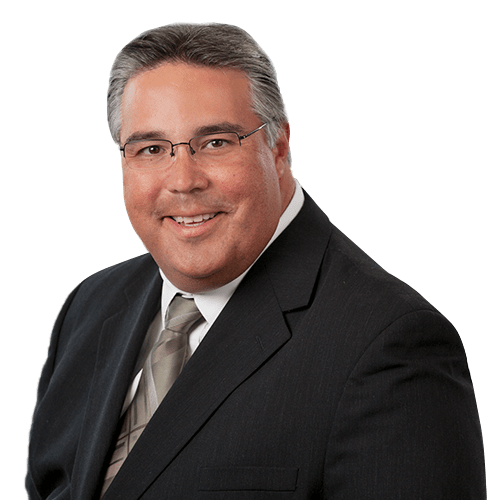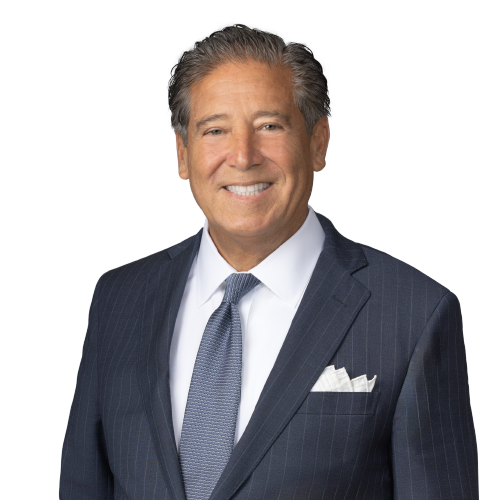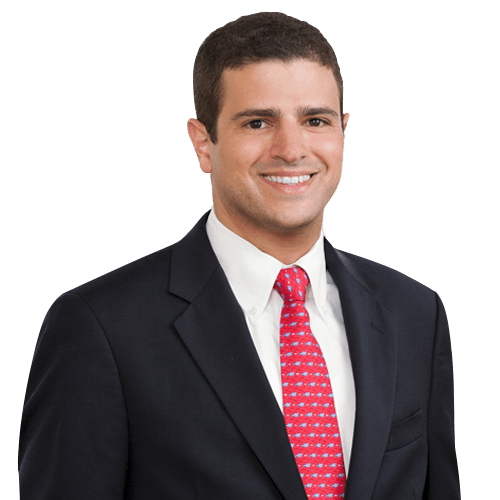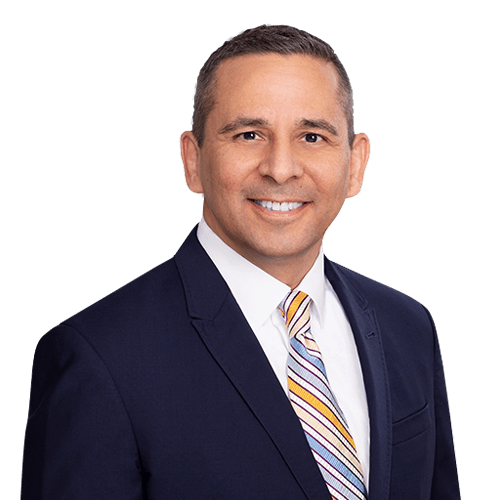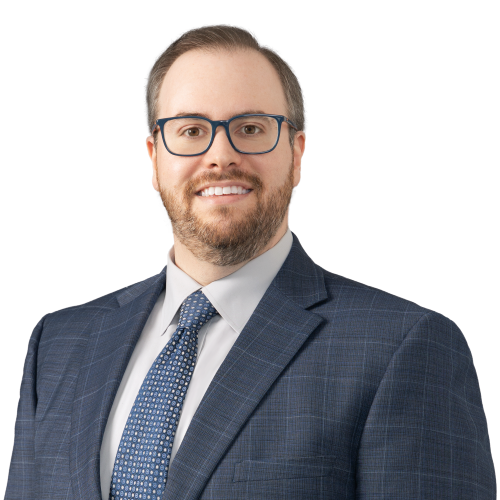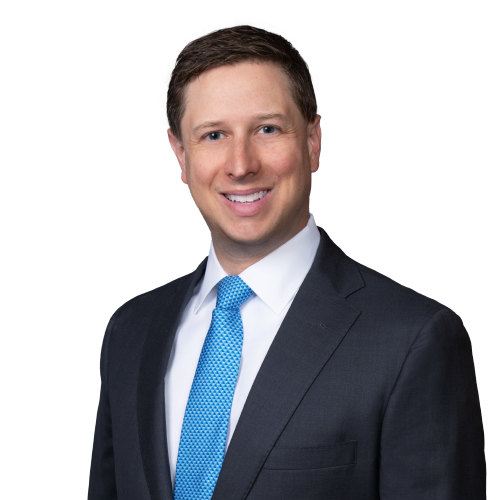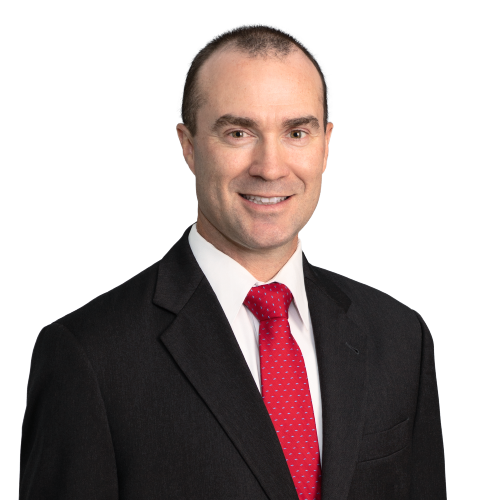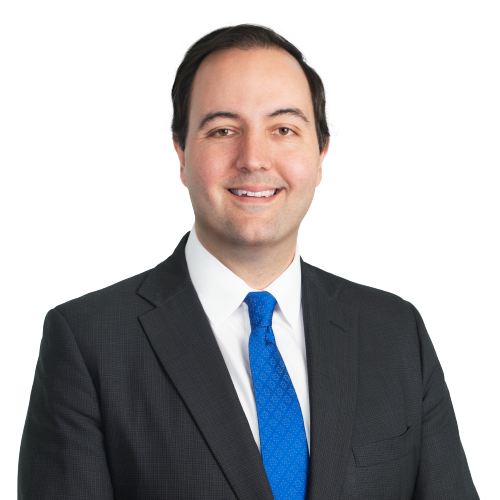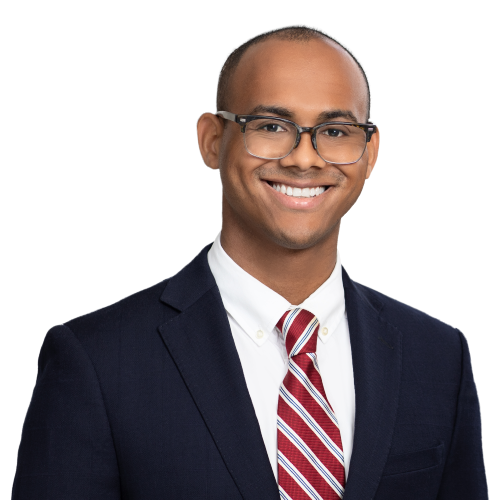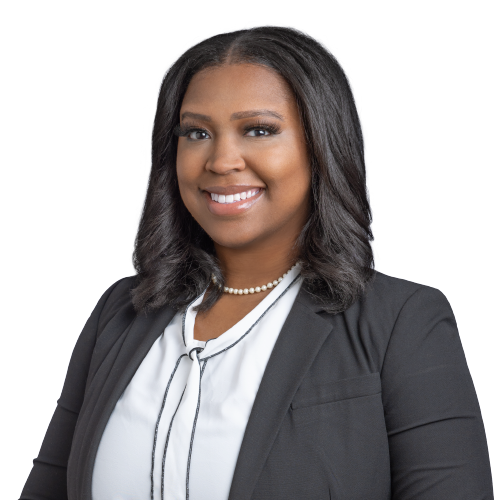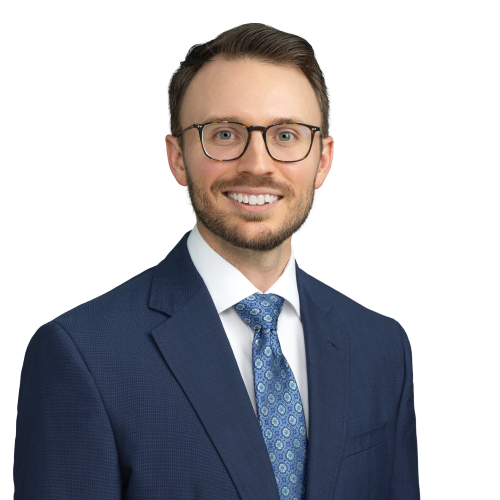
Appellate & Trial Support
Overview
There are critical distinctions between persuading trial judges and persuading appellate judges. Our appellate lawyers know how to advocate to all judges and especially appellate judges.
We regularly practice in state and federal appellate courts across the country, continually gaining insights into effective appellate advocacy. We write and speak frequently on written and oral appellate advocacy, which further keeps our advocacy skills up to date. We also discuss appellate strategies and issues internally, with the benefit of decades of lessons learned and passed on, which can improve the chances of success on appeal.
With all of this comes insight and wisdom, providing an edge in court that could not be gained without access to our entire group. Our track record speaks for itself: We have obtained reversals of numerous multimillion-dollar judgments and three multibillion-dollar judgments, and we have upheld substantial judgments for our clients.
For years our appellate lawyers also have provided trial support for our clients and our clients' trial lawyers in trials throughout the United States. Working collegially and efficiently with trial counsel, we help prevent unforced errors and assure proper preservation of the record for appeal. Not only do we assist in identifying and presenting important pretrial and trial legal issues to the trial judge, we keep a sharp eye on case-dispositive issues as they develop at trial and identify the evidence required to support or challenge those issues. We help our clients manage their litigation risk and maximize their decision-making process. Our presence demonstrates to both the other side and the court the client's commitment to the case.
When a favorable verdict is rendered for our client, we analyze what else needs to be done to try to make it stick. When an adverse verdict is rendered, we engage in immediate post-trial triage with our client and trial lawyers, including resolving bonding issues. Then we appeal, with the best possible record.
At all stages of the case, we provide appellate and legal strategies as part of crisis responses to client's unexpected and time-sensitive problems. Injunctions, motions for reconsideration, extraordinary appellate writs, and interlocutory appeals are important tools in our group's arsenal.
We recognize the reality that most appeals are won (or lost) on the written briefs. Consequently, we pay careful attention to our written advocacy, not only for substance and forceful advocacy but also for readability by busy appellate judges and clerks. Members of our groups always are willing to read drafts of briefs with fresh, cold eyes, as a value added to our clients.
We also prepare assiduously for oral arguments, regularly conducting mock arguments before lawyers not involved in the briefing who rigorously question us and critique the arguments and answers to hard questions from the bench. Then we continue our preparation and make the actual oral arguments with the enormous benefit these exercises provide.
Carlton Fields' appellate attorneys have handled appeals and provided trial support in a vast array of substantive areas of the law, including personal injury claims alleging negligence and product liability, commercial matters involving businesses embroiled in tort or contract litigation, insurance matters such as bad faith and coverage, and federal matters such as civil rights and intellectual property.
In addition, we are increasingly involved in new and emerging areas of law, such as cybersecurity and data privacy, financial and professional services in today's litigious world, social media defamation and fake news, climate change, and esports. We continually work on evolving legal standards of proof for punitive damages and sanctions motions, and on preserving appellate arguments in that regard.
Who We Are:
- Our attorneys have spent their careers earning credibility with appellate courts and are recognized for their appellate experience and excellence.
- We have appeared before the U.S. Supreme Court and every federal appeals court, as well as appellate courts of more than 30 states.
- Our diverse group includes a former appellate judge and former law clerks from numerous state and federal appellate courts, including the Supreme Court.
- Our lawyers have served over the years in leadership roles in many national organizations devoted to the administration of justice in state and federal courts and to improving trial and appellate court advocacy.
- American Academy of Appellate Lawyers (former president; elected members)
- American Bar Association (former member council for Judicial Division; co-chair Appellate Practice Committee)
- American College of Trial Lawyers (former chair and current member of Teaching of Trial and Appellate Advocacy Committee)
- American Judicature Society (former president)
- American Law Institute (member of council; elected members)
- Appellate Judges Education Institute (ABA representative on board of directors)
- National Center for State Courts (former co-chair of Lawyers Committee)
- In addition, our lawyers are active in state bar appellate practice committees.
- As a result of our continual focus on the enhancement of our appellate advocacy skills, our group truly is greater than its parts.
What We Do:
- We plan for the appeal before the appeal.
- We work with clients and trial counsel at the trial court stage to create legal strategies that improve the chances for success both at trial and on appeal, as well as to identify arguments for a potential change in the law.
- We handle interlocutory appeals and petitions for extraordinary relief before trial.
- When an adverse judgment is entered, we work with the client and trial counsel on post-trial triage, including developing the most effective appellate strategy to achieve optimal results.
- When a favorable judgment is entered, we work with the client and trial counsel to protect it.
- We prepare an early and realistic evaluation of the appeal and any cross-appeal.
- We communicate with our clients regularly so they know the status of the appeal, without sudden surprises.
- From bet-the-company cases to routine matters, we staff cases efficiently with the right attorneys to meet the client's needs and objectives.
- We author amicus briefs on issues of importance to our clients.
- We provide in-house seminars on topics of interest to our clients.
SUCCESSFUL APPEALS REQUIRE MASTERY OF THE APPELLATE FRAMEWORK.
~ American Bar Association’s Appellate Practice Manual
Carlton Fields is retained regularly by clients to assist trial counsel (both within and outside the firm) in jury trials across the country, and our appellate lawyers have been doing this for decades. In this way, our appellate lawyers:
- Assist trial counsel on evidentiary issues arising at trial
- Develop and argue legal issues in the case
- Assist trial counsel in preserving the record
- Prepare motions and responses to motions during trial
- Prepare jury instructions and verdict forms
- Handle charge conferences
- Brief and argue post-trial motions
- Handle any bond issues after an adverse verdict
In particular, we have found — and trial counsel have confirmed — that involving appellate counsel in key, outcome-determinative legal issues before and during trial allows the trial lawyers to focus on the trial itself, while assuring that legal arguments are presented in a way that is persuasive to the trial court and best framed for the appellate court. This primes the case for the maximum chances of success at trial and on appeal.
To this end, our attorneys stay current on developments in substantive and evidentiary law. Developments in the law are provided to firm attorneys through regular internal seminars.
In 2022, the Carlton Fields Appellate Practice obtained a remarkable number of appellate decisions for the benefit of their clients. The decisions included appeals from cases handled at the trial level by Carlton Fields lawyers as well as cases handled by trial lawyers in other firms. Members of the group also assisted the lead appellate lawyer by providing a cold eyes review of the draft brief and by serving as judges for mock oral arguments. In addition, the group submitted amicus curiae briefs in several important appeals in which the party we supported prevailed. This year was a very good year for the Carlton Fields Appellate Practice Group and their clients, and we look forward to a successful 2023.
- Susan Lynne Rohe v. Wells Fargo Bank, N.A., No. 21-10561 (11th Cir. Dec. 19, 2022)
- MGFB Properties, Inc. v. Viacom Inc., No. 21-13458 (11th Cir. November 29, 2022)
- Jason Tranumn v. U.S. Bank National Association, No. 1D21-3314 (Fla. 1st DCA Nov. 29, 2022)
- Damonie Earl et al. v. The Boeing Company, No. 21-40720 (5th Cir. Nov. 21, 2022)
- Niloy Thakkar v. Good Gateway LLC, No. 5D21-848 (Fla. 5th DCA Nov. 18, 2022)
- McCormick Mile Investments, LLC v. Laurence K. Barnes, No. 4D21-2357 (Fla. 4th DCA Nov. 9, 2022)
- Michael Arevalo v. Mentor Worldwide LLC, No. 21-11768 (11th Cir. November 8. 2022)
- Arthur Cartee v. Boehringer Ingelheim Pharmaceuticals, Inc., Pfizer, Inc., GlaxoSmithKline LLC, No. 21-10305 (11th Cir. November 7, 2022)
- Marilyn Williams v. Boehringer Ingelheim Pharmaceuticals, Inc., Boehringer Ingelheim USA Corporation, Walgreens Boot Alliance, Inc., No. 21-10306 (11th Cir. November 7, 2022)
- Millennium Bank v. Darby & Peele, No. 1D21-3891 (Fla. 1st DCA October 10, 2022)
- Lombardy v. Lombardy, No. 5D22-1002 (Fla. 5th DCA Sept. 14, 2022)
- William M. Fuget v. Rachel F. Gerker, William T. Gerker and Government Employees Insurance Company, No. 5D21-1493 (Fla. 5th DCA August 9, 2022)
- Lalitha E. Jacob, MD v. Mentor Worldwide, No. 20-10132 (11th Cir. July 20, 2022)
- Safe Harbor Equity Distressed Debt Fund v. Jugal K. Taneja, No. 2D21-2756 (Fla. 2nd DCA June 29, 2022)
- Transamerica Life Insurance Company v. Angelina D. Slee, Thomas M. Slee, Anthony Slee, as power of attorney for Angelina D. Slee, No. 21-35093 (9th Cir. June 28, 2022)
- James E. Reed v. Aviva USA Corporation, No. A158535 (Cal. 1st DCA June 16, 2022)
- Marlene Cueto Iglesias, Miriam Iglesias Alvarez v. Pernod Ricard, No. 21-12398 (11th Cir. June 3, 2022)
- Royal Palm Optical v. State Farm Mutual Automobile Insurance Company, No. 21-11335 (11th Cir. May 25, 2022)
- Café International Holding Company v. Chubb Limited, No. 21-11930 (11th Cir. May 13, 2022)
- Transamerica Life Insurance Company v. Angelina D. Slee, No. 21-35093 (9th Cir. May 10, 2022)
- California DUI Lawyers Association v. California Department of Motor Vehicles, No. B305604, B309145 (Cal. 2nd DCA April 14, 2022)
- KB Home Fort Myers LLC v. Taishan Gypsum Co., No. 2D21-384 (Fla. 2nd DCA April 13, 2022)
- Kelly v. Georgia-Pacific LLC. Ripple v. CBS Corp., No. 4D20-1939 (Fla. 4th DCA Mar. 30, 2022)
- ASG & C, Inc., a New York Corporation v. Arch Specialty Insurance Company, No. 21-1761 (2nd Cir. March 22, 2022)
- In re Heather Hills Amenities, LLC, 8:21-CV-1057-CEH, 2022 WL 833706 (M.D. Fla. Mar. 21, 2022)
- Managed Care Advisory Group, LLC v. United Healthcare of North Carolina, No. 21-10247 (11th Cir. March 16, 2022)
- Patel v. 3MT Investments, LLC, No. 2D21-1587 (Fla. 2nd DCA Mar. 11, 2022)
- Corey Shader, et al. v. ABS Healthcare Services, LLC, No. 3D21-2344, 3D21-2437 (Fla. 3rd DCA March 9, 2022)
- EHC, Inc. v. KB Home Tampa LLC, No. 2D20-2097 (Fla. 2nd DCA Mar. 4, 2022)
- Hernandez v. CGI Windows & Doors, Inc., 3D20-1318 (Fla. 3rd DCA Mar. 2, 2022)
- Steven J. Pincus v. American Traffic Solutions, Inc., No. 333 So. 3d 1095 (Fla. 2022)
- Palafox, LLC v. Diaz, No. 1D20-3415 (Fla. 1st DCA Feb. 9, 2022)
- Steven Pincus v. American Traffic Solutions, No. SC21-159 (SC FL February 3, 2022)
- Constance Marie Bostick v. St. Petersburg Manager, No. 2D21-569 (Fla. 2nd DCA January 28, 2022)
- Alachua Cnty v. Watson, No. SC19-2016 (Fla. Jan. 27, 2022)
- Gregory B. Meyers v. The St. Joe Company, No. 2D21-1329 (Fla. 2nd DCA January 26, 2022)
- Fleming Properties v. Robin Flemming, No. 4D20-1396 (Fla. 4th DCA January 20, 2022)
- Gregory B. Meyers v. The St. Joe Company, No. 1D12-703 (Fla. 1st DCA January 13, 2022)
- Thakkar v. Good Gateway, LLC, 2022 WL 17071686 (Fla. 5th DCA 2022)
- Hernandez v. CGI Windows & Doors, Inc., 347 So. 3d 113 (Fla. 3d DCA 2022)
- Taneja v. First Street & Fifth Ave., LLC, 338 So. 3d 362 (Fla. 2d DCA 2022)
- Ripple v. CBS Corp., 337 So. 3d 45 (Fla. 4th DCA 2022)
- Florida Ass’n of Realtors v. Orange Cnty., 350 So. 3d 115 (Fla. 5th DCA 2022)
- Kim v. Galasso, 348 So. 3d 1183 (Fla. 2d DCA 2022)
Appellate courts across the country are open for business, and so are our appellate lawyers. We have been presenting virtual oral arguments through both teleconferencing and videoconferencing software. While such arguments can work fine, they are very different from in-person arguments, and the advocate must prepare and adjust for these differences.
We accordingly have become proficient with the technology and techniques to ensure effective, top-notch advocacy and trial support in a post-COVID-19 world that includes virtual and in-person proceedings. Members of our firm have been integral in developing guidelines for best practices for virtual advocacy including appellate arguments. We continue to learn about the latest trends and reports on digital practices that will improve our appellate oral advocacy.
Each of our offices has a dedicated “broadcast” room to assure the best possible forum for presenting arguments remotely. Our appellate lawyers use the firm’s virtual mock oral argument technology to prepare for such arguments. Practicing in the same remote forum that will be used in real life is invaluable.
These uncertain times also are creating the need for extraordinary appellate relief, before final judgments, such as writs of certiorari or prohibition on various issues created by COVID-19 and other events in today’s extraordinary world. In addition to the usual trial and appellate issues that must be addressed as trials resume, unique concerns related to post-COVID-19 virtual and in-person trials and pretrials have created a new range of issues that will need to be properly preserved. It truly is a new world. Our appellate lawyers are ready to help assure that happens at the trial level.
Experience
Appellate Wins - 2022
It was a great first quarter for the Carlton Fields Appellate lawyers as they secured successful outcomes for our clients.
- Obtained affirmance of the bankruptcy court’s dismissal of their complaint, arguing that the bankruptcy court erred in its resolution of several issues, including claim preclusion and equitable mootness. In re Heather Hills Amenities, LLC, 8:21-CV-1057-CEH, 2022 WL 833706 (M.D. Fla. Mar. 21, 2022) – Nathan Foell
- Obtained partial affirmance of final judgment in Wrongful Death Act case regarding ability of a surviving spouse and adult children to recover loss of consortium damages where the injury at issue predated the marriage between the spouse and the decedent. The Fourth District certified conflict with a Fifth District decision. Kelly v. Georgia-Pacific LLC. Ripple v. CBS Corp., No. 4D20-1939 (Fla. 4th DCA Mar. 30, 2022) – Matt Conigliaro
- Obtained order directing final judgment in our client’s favor and precluding the appellee from going forward on an amended complaint to collect more than $11 million on a guaranty related to a prior appeal in which we secured the reversal of a $9.8 million judgment. Taneja v. First Street & Fifth Avenue LLC, No. 2D20-679 (Fla. 2d DCA Mar. 25, 2022); Taneja v. First Street & Fifth Avenue LLC, 310 So. 3d 1275 (Fla. 2d DCA 2021) – Matt Conigliaro
- Obtained quashal of decision of lower appellate court where, applying fundamentals of statutory interpretation, statutes governing budgetary process for counties and sheriffs did not permit sheriffs to make object-level transfers in budget without approval of board of county commissioners. Alachua Cnty v. Watson, No. SC19-2016 (Fla. Jan. 27, 2022) – Sylvia Walbolt
- Obtained reversal of a final judgment based on trial court’s error in permitting opposing party to utilize pleadings as admissions at trial. The appellate court ordered a new trial. Hernandez v. CGI Windows & Doors, Inc., 3D20-1318 (Fla. 3d DCA Mar. 2, 2022) – Matt Conigliaro
- Obtained per curiam affirmance and appellate attorneys’ fees award in favor of our client KB Home. EHC, Inc. v. KB Home Tampa LLC, No. 2D20-2097 (Fla. 2d DCA Mar. 4, 2022) – Joe Lang
- Obtained denial of a certiorari petition regarding an order requiring discovery of a parties’ financial records. Patel v. 3MT Investments, LLC, No. 2D21-1587 (Fla. 2d DCA Mar. 11, 2022) – Matt Conigliaro
Additional Appellate Wins
- Crime v. Looney, 328 So. 3d 1157 (Fla. 1st DCA 2021). Won reversal of $2.6 million merits and fees judgments, remanding for a new trial in personal injury case.
- Llauro v. Linville, 2021 WL 5767935 (11th Cir. Nov. 6, 2021). Won affirmance of dismissal of civil rights case.
- Taneja v. First Street & Fifth Avenue LLC, 310 So. 3d 1275 (Fla. 2d DCA 2021). Won reversal of $9.8 million judgment in commercial case.
- A team of Carlton Fields lawyers recently obtained a favorable ruling from the Ninth Circuit Court of Appeals in a large insurance coverage matter. The Ninth Circuit affirmed the district court’s order granting summary judgment for AIG, holding that the contract exclusion in a “media liability” insurance policy barred coverage for a $77.5 million settlement Office Depot entered to resolve claims brought against it under the California False Claims Act. Carlton Fields President and CEO Gary Sasso presented oral argument before the Ninth Circuit Court of Appeals.
- Carlton Fields Shareholders Sylvia Walbolt and Dean Morande secured an appellate opinion confirming that, under an exception to the local action rule, a lender may bring its multimillion-dollar foreclosure case in a single action, even where the underlying properties are located in multiple counties. The decision resolved what the opposing party claimed was an interdistrict split on the application of the local action rule.
- In Salcedo v. Hanna, No. 17-14077 (11th Cir. Aug. 28, 2019), Carlton Fields appellate attorneys represented an entity sued under the TCPA in a putative class action for sending a single unwanted text message. In a landmark decision, the Eleventh Circuit Court of Appeals held that the plaintiff failed to allege a concrete injury sufficient to confer Article III standing, creating a circuit split on the issue.
- A Carlton Fields appellate and trial team recently obtained an affirmance from the Eleventh Circuit Court of Appeals in a class action lawsuit. The trial team first secured a ruling from the district court dismissing the plaintiff’s second amended class action complaint with prejudice as an impermissible “shotgun pleading” in violation of the Federal Rules of Civil Procedure. On appeal, the Eleventh Circuit held that the district court did not abuse its discretion because, despite the district court’s instructions, the amended complaint failed to provide a “short and plain statement” giving each defendant fair notice of the claims against it and the grounds upon which they rested.
- In granting a petition for writ of certiorari brought by Carlton Fields, the Second District Court of Appeal recently resolved an issue of first impression under Florida law. The trial judge had deferred ruling on a motion to dismiss asserting lack of personal jurisdiction, instead ordering the parties to first arbitrate both the jurisdictional dispute and the merits of the case. The court held this was a departure from the essential requirements of the law because the trial court was required to resolve the personal jurisdiction challenge before it could refer the action to arbitration.
- Our team obtained an appellate victory in a sovereign immunity case involving fair associations in Florida. Reversing a trial court’s decision, the appellate court held that fair associations have limited sovereign immunity under Florida law.
- Shuker v. Smith & Nephew, PLC, 885 F.3d 760 (3d Cir. 2018). In a case of first impression, the Third Circuit Court of Appeals held that the plaintiff’s negligence, strict liability, and breach of implied warranty claims against our client, a medical device manufacturer, were expressly preempted under the Medical Device Amendments of 1976 to the Federal Food, Drug, and Cosmetic Act. The plaintiff’s claims involved a hip-replacement system that consisted of a number of component parts subject to different categories of federal regulation.
- United States v. HPC Healthcare, Inc., 723 F. App’x 783 (11th Cir. 2018). The Eleventh Circuit Court of Appeals affirmed dismissal with prejudice of a qui tam action brought against our client for the alleged fraudulent submission of medical billing to Medicare and Medicaid. The court agreed that the plaintiff had failed to plead detailed allegations sufficient to satisfy the applicable standards under Federal Rule of Civil Procedure 9(b).
- Bechtel Corp. v. Batchelor, No. 3D16-2624, 2017 WL 6598822 (Fla. 3d DCA Dec. 27, 2017). Florida’s Third District Court of Appeal reversed a $12.8 million verdict and remanded for entry of judgment as a matter of law in favor of our client, a contractor that had performed maintenance at a power plant owned by Florida Power & Light. The appellate court agreed that the plaintiff failed to prove that our client had sufficient control over the power plant such that it could be held responsible in a premises liability action involving alleged exposure to asbestos. In addition, the court held that the trial court had improperly provided an adverse-inference jury instruction.
- Pinellas Cty. v. Richman Grp. of Fla., Inc., 253 So. 3d 662 (Fla. 2d DCA 2017). Florida’s Second District Court of Appeal reversed a $16.5 million award against our client, Pinellas County, in an action alleging equal protection and substantive due process constitutional violations. The action stemmed from the county’s denial of a developer’s application to change a land-zoning designation from “industrial limited” to “residential limited.” The appellate court determined that the zoning denial was rationally based on legitimate government concerns regarding maintaining a desired level of industrial zoning and significant community opposition to the proposed change in zoning designation.
- Holmes Reg’l Med. Ctr., Inc. v. Allstate Ins. Co., 225 So. 3d 780 (Fla. 2017). The Florida Supreme Court quashed the decision of the Fifth District Court of Appeal and ruled in our client’s favor by holding that an initial tortfeasor that has had judgment for its negligence entered against it — but has not fully satisfied that judgment — is not entitled to seek equitable subrogation from a subsequent tortfeasor, such as an allegedly negligent treating physician.
- McDaniel v. Fifth Third Bank, 192 So. 3d 489 (Fla. 5th DCA 2016). Florida’s Fifth District Court of Appeal affirmed the dismissal of a putative class action alleging unlawful check-cashing fees. The Fifth District affirmed the trial court’s ruling that the claims were federally preempted, as well as its ruling that section 655.85, Florida Statutes, does not provide a private cause of action.
- PNC Bank, N.A. v. Smith, No. S15Q1445 (Ga. Feb. 22, 2016). The Georgia Supreme Court unanimously held that guarantors could expressly waive protections afforded to them by Georgia’s anti-deficiency statute. In response to two questions certified by the U.S. District Court for the Northern District of Georgia, the court found that compliance with Georgia’s anti-deficiency statute requiring confirmation of a nonjudicial foreclosure sale constituted a condition precedent to a lender’s pursuit of a deficiency action to recover from guarantors the remaining balance owed on a loan following foreclosure of collateral property. But the court further held that guarantors could contractually waive such condition precedent, thereby allowing a lender to pursue a deficiency directly from guarantors, the lack of confirmation of such sale notwithstanding.
- Charlotte Cty. v. Andress Family Fla., LP, 186 So. 3d 1029 (Fla. 2d DCA 2016). Florida’s Second District Court of Appeal affirmed a final judgment for plaintiffs in a multimillion-dollar inverse condemnation action. The court affirmed the finding that Charlotte County, through its actions, inactions, and regulations, effected a compensable temporary taking of private property in violation of the United States and Florida constitutions.
- Hoefling v. City of Miami, 811 F.3d 1271 (11th Cir. 2016). The Eleventh Circuit Court of Appeals reversed the district court’s dismissal of all of plaintiffs’ claims except his substantive due process claim. The plaintiff asserted that the city illegally seized and destroyed his sailboat without justification or notice. The court held, among other things, that the trial court incorrectly (1) applied a heightened pleading standard to plaintiff; (2) considered reports attached to the first amended complaint but omitted from the second; (3) deemed the procedural due process claim insufficient as to municipal liability; and (4) concluded that the seizing officers were entitled to qualified immunity based on the improperly considered reports.
- Crosby Valve, LLC v. Dep't of Ins., 131 A.3d 1087 (Pa. Commw. Ct. 2016). The Commonwealth Court of Pennsylvania affirmed the orders of the Pennsylvania Insurance Department, which denied policyholder objectors’ motions to intervene in the department’s administrative review proceeding involving a “Form A” transaction to transfer ownership of several insurance companies, and which protected the confidential financial and business information of the parties to the transaction. The court held that the insurance department did not violate the policyholder objectors’ due process rights in the proceeding, and dismissed, for lack of standing, the policyholder objectors’ attempted appeal from the department’s order approving the transaction.
- Dello Russo v. Fifth Third Bank, 634 F. App'x 774 (11th Cir. 2015). The Eleventh Circuit Court of Appeals affirmed dismissal with prejudice of a complaint alleging a multimillion-dollar claim. The complaint alleged a lender committed fraud and was unjustly enriched in conjunction with the plaintiff’s personal guaranty of corporate promissory notes. The district court applied Illinois law to dismiss the complaint, finding the parties agreed to the application of Illinois law in the guaranty, even though the guarantor argued his claims were “extra contractual.” The Eleventh Circuit agreed the choice-of-law contract provision applied and that dismissal was required under Illinois law.
- Allstate Ins. Co. v. Theodotou, 171 So. 3d 163 (Fla. 5th DCA 2015). Represented medical care providers in a case certifying a question of great public importance to the Florida Supreme Court on the application of the equitable subrogation doctrine, where an unsatisfied judgment had been entered against the initial tortfeasor. The Florida Supreme Court accepted jurisdiction, and review is pending.
- Rothstein v. Balboa Ins. Co., 794 F.3d 256 (2d Cir. 2015). The Second Circuit Court of Appeals reversed the district court’s order denying defendants’ motion to dismiss on the basis of the “filed-rate doctrine.” The court ruled that a claim challenging a regulator-approved rate is subject to the doctrine regardless of whether the rate passes through an intermediary. Finding that the plaintiffs’ claims would undermine the rate-making authority of the state insurance regulators who approved the rate, the court remanded for dismissal.
- Wachovia Mtg. Corp. v. Posti, 166 So. 3d 944 (Fla. 4th DCA 2015). Florida’s Fourth District Court of Appeal held the trial court lacked jurisdiction to award the requested relief because it was not requested in the pleadings or tried by consent.
- Wells Fargo Bank, N.A. v. Michaels, 166 So. 3d 226 (Fla. 5th DCA 2015). Florida’s Fifth District Court of Appeal reversed the trial court’s denial of a motion to vacate the order dismissing the case because the trial court failed to enter or serve the order or otherwise give notice to the parties.
- Bond Safeguard Ins. Co. v. Nat'l Union Fire Ins. Co. of Pittsburgh, 628 F. App'x 64 (11th Cir. 2015). The Eleventh Circuit Court of Appeals upheld the application of a directors and officers liability policy’s “arising out of” contract liability exclusion to a land development-related business dispute between the developer and its surety, which was pleaded solely in tort. The court held that a clear nexus existed between the alleged torts and that the underlying development contracts, that the tort claim was inextricably intertwined with circumstances surrounding the development contracts, and that the resolution of the tort claim required consideration of the losses and duties under the development contract.
- Matheson v. Miami-Dade Cty., 187 So. 3d 22 (Fla. 3d DCA 2015). Florida’s Third District Court of Appeal held a constitutional referendum clearly and unambiguously explained to voters its purpose, which was to find out whether two-thirds of those voters supported the expansion of a tennis center that hosts the Miami Open Tennis Tournament and modification and extension of the county’s agreements with the operator of the facility.
- Bank of Am., N.A. v. Asbury, 165 So. 3d 808 (Fla. 2d DCA 2015). Florida’s Second District Court of Appeal reversed a final judgment finding the plaintiff did not comply with a condition precedent to a foreclosure action and remanded. On appeal, the plaintiff argued, and the court agreed, that the trial court improperly considered whether a default notice had been delivered because the defendant did not raise the issue in her answer or as an affirmative defense.
- AHF-Bay Fund, LLC v. City of Largo, 169 So. 3d 133 (Fla. 2d DCA 2015), review pending, SC15-1201. Florida’s Second District Court of Appeal reversed an order granting summary judgment in favor of the city of Largo based on a PILOT (payment in lieu of taxes) agreement. The court ruled that the payments called for by the PILOT agreement and sought to be enforced by the city against a not-for-profit, tax-exempt entity are the equivalent of ad valorem taxes that would otherwise be due but for the statutory tax exemption and, as a result, the city’s PILOT agreement violates Article VII, Section 9(a) of the Florida Constitution (providing that municipalities shall impose taxes only as authorized by law) and the public policy of promoting affordable housing. The court ruled the PILOT agreement was therefore void. Read Opinion.
- Merrimon v. Unum Life Ins. Co. of Am., 758 F.3d 46 (1st Cir. 2014). The First Circuit Court of Appeals held that the insurer’s use of retained asset accounts did not constitute self-dealing under ERISA section 406(b), but reversed as to the trial court’s ruling that the insurer breached a duty of loyalty to the plaintiff class under ERISA section 406(a) through the use of those accounts.
- Am. Bus. USA Corp. v. Dep’t of Rev., 151 So. 3d 67 (Fla. 4th DCA 2014), review pending, SC14-2404. The Fourth District Court of Appeal struck down a tax assessed by the Florida Department of Revenue as a violation of the dormant Commerce Clause of the U.S. Constitution. The Florida Department of Revenue collected sales tax from a Florida florist for orders placed by out-of-state customers. These orders were relayed to out-of-state florists, and these out-of-state florists would actually fill the orders and deliver the flowers. Despite an administrative regulation directly on point, the Fourth District overturned the tax and determined that Florida had no “substantial nexus” to such transactions. Because the flowers never entered Florida and did not have any type of connection to Florida, the state of Florida could not constitutionally tax these transactions. The Fourth District also upheld a tax assessed on calling-card sales based on a record-keeping issue.
- McDaniel v. Fifth Third Bank, 568 F. App'x 729 (11th Cir. 2014). The Eleventh Circuit Court of Appeals reversed an order remanding a putative class action to Florida state court. The district court ruled that certain of the claims asserted were legally insufficient and, thus, the damages claimed thereunder did not satisfy the amount-in-controversy requirement of the Class Action Fairness Act of 2005. The Eleventh Circuit held that when determining subject-matter jurisdiction, the issue is not the plaintiff’s probable success on the merits.
- In re Adoption of D.P.P., 158 So. 3d 633 (Fla. 5th DCA 2014). The Fifth District Court of Appeal reinstated a judgment of adoption and reversed the order that vacated that judgment of adoption on the basis that the trial court lacked jurisdiction to consider a petition for adoption filed by unmarried women.
- Winn-Dixie Stores, Inc. v. Dolgencorp, LLC, 746 F.3d 1008 (11th Cir. 2014). The Eleventh Circuit Court of Appeals reversed a district court order that refused to grant full injunctive relief for violations of real property restrictive covenants running with the land.
- Gen. Elec. Capital Corp. v. Shattuck, 132 So. 3d 908 (Fla. 2d DCA 2014). The Second District Court of Appeal reversed a $1.1 billion judgment, holding that the court erroneously added non-party entities to that judgment.
- Bloch v. Wells Fargo Home Mortg., 755 F. 3d 886 (11th Cir. 2014). The Eleventh Circuit Court of Appeals affirmed a final defense summary judgment addressing the effect of a “trial” loan modification, application of the Florida Banking Statute of Frauds, and the proof needed to maintain promissory estoppel and negligence claims.
- Cohen v. Am. Sec. Ins. Co., 735 F.3d 601 (7th Cir. 2013). The Seventh Circuit Court of Appeals affirmed the dismissal of a class action complaint. A homeowner failed to purchase homeowners insurance, and pursuant to disclosures in the loan agreement, the lender secured insurance and passed the cost to the homeowner. The homeowner sued under a variety of statutory and common law claims, most of which sounded in fraud or tort, and argued that the lender-placed insurance was too expensive and included a “kickback” to the lender’s insurance-agency affiliate. Although the district court dismissed based on federal preemption and the filed-rate doctrine, the Seventh Circuit affirmed because the complaint and proffered amendments thereto failed to state a viable claim for relief. The homeowner was contractually obligated to maintain property insurance, and the consequences for failing that obligation had been clearly disclosed.
- London v. Wal-Mart Stores, Inc., 340 F.3d 1246 (11th Cir. 2003). The Eleventh Circuit Court of Appeals decertified a class in a suit alleging that appellants violated Florida laws affecting credit life insurance, finding the class representative failed to meet Rule 23(a)(4)'s adequate representation prerequisite because of the significant personal and financial ties between the class representative and class counsel, which cast doubt on the appellee’s ability to place the interest of the class above those of class counsel.
- City of Palm Bay v. Wells Fargo Bank, N.A., 114 So. 3d 924 (Fla. 2013). The Florida Supreme Court invalidated a municipal ordinance that gave local code enforcement liens “superpriority” over previously recorded interests in real property, such as mortgage liens. The court held that the Florida Legislature has adopted a prioritization scheme for recorded instruments, with a general rule of first in time, and that municipalities cannot adopt ordinances that conflict with that statutory scheme by giving certain liens priority over instruments that would otherwise have priority under state law.
- Farkas v. Nat’l Union Fire Ins. Co. of Pittsburgh, 518 F. App'x 178 (4th Cir. 2013). The Fourth Circuit Court of Appeals affirmed a decision that put teeth into exclusions of coverage of a directors and officers liability policy where the insured “in fact” committed criminal acts. The insured sought coverage for defense costs for his federal criminal trial for bank, wire, and securities fraud.
- Kostelac v. Allianz Global Corp. & Specialty AG, 517 F. App’x 670 (11th Cir. 2013). The Eleventh Circuit Court of Appeals upheld the enforcement of an international forum-selection clause contained in an aviation product liability policy issued to a German aircraft manufacturer. The putative assignees of the German insured, who were American citizens, had attempted to evade the forum-selection clause, which mandated that all coverage litigation take place in the courts of Germany. The Eleventh Circuit agreed that the clause was enforceable against the American assignees and affirmed dismissal of the action to Germany under the doctrine of forum non conveniens.
- Ford Motor Co. v. Stimpson, 115 So. 3d 401 (Fla. 5th DCA 2013). Following a verdict in Ford’s favor, the trial court entered judgment in the plaintiff’s favor, and alternatively ordered a new trial, finding that Ford committed a fraud on the court. The Fifth District Court of Appeal reversed and remanded for reinstatement of the verdict, concluding that the record did not support the fraud finding and that the jury had already considered and rejected these allegations. In addition, the court held the new trial was inappropriate.
- Plancher v. UCF Athletics Ass’n, Inc., 175 So. 3d 724 (Fla. 2015). The Florida Supreme Court confirmed the analysis used to examine whether a corporation acts as an instrumentality of the state and thus possesses limited sovereign immunity. In a case involving the death of a college football player, a trial court ruled that the corporation operating UCF’s athletics department lacked sovereign immunity, and the plaintiff obtained a $10 million judgment. The Fifth District Court of Appeal reversed, and the Supreme Court approved that reversal, holding that sovereign immunity and the $200,000 cap on liability applied.
- Farias v. Mr. Heater, Inc., 684 F.3d 1231 (11th Cir. 2012). The Eleventh Circuit Court of Appeals affirmed summary judgment in favor of manufacturer. The court held that the product’s English-language warnings were adequate as a matter of law. The court also held that because manufacturer and retailer did not advertise or market the product in Spanish, they were not required to include Spanish-language instructions and warnings.
- Union Carbide Corp. v. Aubin, 97 So. 3d 886 (Fla. 3d DCA 2012), rev. pending, SC12-2075. The Third District Court of Appeal reversed a $6.6 million judgment and ordered a partial new trial in a product liability case. The court held that a raw asbestos supplier was entitled to a directed verdict on a defective design claim because no evidence showed the alleged design caused the injuries at issue. The court also held that the jury instructions on a failure to warn claim were misleading because they imposed a duty on the raw material supplier to warn users of finished products about the dangers of asbestos without explaining how the supplier could satisfy that burden. The Florida Supreme Court accepted jurisdiction to review this decision and the case remains pending.
- Hunter v. Runyan, 382 S.W.3d 643 (Ark. 2011). The Supreme Court of Arkansas affirmed the denial of a motion to intervene in a nationwide class action settlement.
- McKesson Medication Mgmt., LLC v. Slavin, 75 So. 3d 308 (Fla. 3d DCA 2011). The Third District held that a pharmacy operator had no duty to train nurses and doctors regarding medications used during surgery. The court reversed a $5.3 million personal injury judgment and remanded for entry of judgment in operator’s favor.
- Archbishop Coleman F. Carroll High Sch., Inc. v. Maynoldi, 30 So. 3d 533 (Fla. 3d DCA 2010). The family of a teenager severely injured in an automobile accident sued his school alleging they were responsible for a party that occurred after school hours and off campus. The Third District reversed a $12 million judgment for entry of judgment in the school's favor, finding a school has no duty to supervise nonschool-related activities. The case also addressed the application of alcohol defense statute to parents of injured minor.
- Godfrey v. Precision Airmotive Corp., 46 So. 3d 1020 (Fla. 5th DCA 2010). The Fifth District reversed a multimillion-dollar verdict against an airplane engine manufacturer on the basis of the improper admission of evidence of other accidents. The appellate court also held that the trial court correctly entered summary judgment in favor of the manufacturer on the issue of punitive damages.
- ACLU v. Miami-Dade Cty. Sch. Bd., 557 F.3d 1177 (11th Cir. 2009). The Eleventh Circuit Court of Appeals reversed a preliminary injunction, finding that the school board did not violate the First Amendment in choosing to replace an elementary school library book containing inaccuracies about Cuba.
- Coleman (Parent) Holdings, Inc. v. Morgan Stanley & Co., 20 So. 3d 952 (Fla. 4th DCA 2009). The Florida Fourth District Court of Appeal affirmed a trial court order denying the plaintiff’s motion to set aside a judgment in Morgan Stanley’s favor. The plaintiff had sought to set aside the judgment and obtain a new trial based on allegations of fraud after the trial court entered judgment in accordance with the Fourth District’s earlier opinion reversing the $1.58 billion judgment against Morgan Stanley.
- Embry v. Ryan, 11 So. 3d 408 (Fla. 2d DCA 2009). In a case of first impression, the Second District Court of Appeal held that a woman who adopted a biological child of her same-sex partner was entitled full faith and credit of adoption entered into in another state.
- Keith v. ManorCare, Inc., 218 P. 3d 1257 (N.M. Ct. App. 2009). The New Mexico Court of Appeals reversed a $53.2 million judgment, including punitive damages, against our client, and ordered a new trial. The appellate court agreed that the trial court erred by entering a pretrial finding that a parent company employed the staff who worked at its subsidiary's nursing home.
- Alvarez v. Ins. Co. of N. Am., 313 F. App’x 465 (3d Cir. 2008). The Third Circuit Court of Appeals affirmed dismissal of putative class action by insured under a long-term care policy, holding that neither the policy nor sales materials were false or misleading, the insured did not rely on any alleged misrepresentation, and no confidential relationship existed between the insurer and the insured at the time of the alleged misrepresentations.
- Ford Motor Co. v. Hall-Edwards, 971 So. 2d 854 (Fla. 3d DCA 2007). In this product liability action, the Third District Court of Appeal: (1) reversed a $60 million jury verdict in favor of parents of a minor killed in an accident involving an Explorer (based on the improper admission of evidence of other accidents and evidence of subsequent remedial measures); and (2) ordered a new trial.
- Engle v. R.J. Reynolds, 945 So. 2d 1246 (Fla. 2006), aff'g in part and rev'g in part, 853 So. 2d 434 (Fla. 3d DCA 2003). The Florida Supreme Court overturned a $145 billion award in a class action brought against multiple cigarette manufacturers. The appeal involved issues concerning class certification, punitive damages, and improper conduct of counsel.
- Thorn v. Jefferson-Pilot Life Ins. Co., 445 F.3d 311 (4th Cir. 2006). In a case alleging that an insurer’s predecessor violated federal law by charging higher premiums to African American policyholders, we argued that the limitations defense could not be resolved on a classwide basis, and the Fourth Circuit Court of Appeals affirmed the district court’s denial of class certification.
- London v. Wal-Mart Stores, Inc., 340 F.3d 1246 (11th Cir. 2003). The Eleventh Circuit Court of Appeals reversed class certification in action brought by credit card applicant against issuer and credit life insurer, alleging Truth in Lending Act violations, finding that the applicant could not fairly and adequately represent the class.
- Zarella v. Minn. Mut. Life Ins. Co., 824 A.2d 1249 (R.I. 2003). The Supreme Court of Rhode Island vacated judgment on jury verdict in favor of insured on negligent misrepresentation claim, and affirmed the trial court’s denial of class certification and dismissal of plaintiff’s remaining claims.
- Am. Bankers Ins. Co. of Fla. v. Booth, 830 So. 2d 1205 (Miss. 2002). The Mississippi Supreme Court, on an interlocutory appeal, reversed chancery court’s denial of defendant’s motion to dismiss class action complaint, holding that Mississippi does not permit class actions, including equitable class actions, in chancery court.
- Great-West Life & Annuity Ins. Co. v. Knudson, 534 U.S. 204 (2002). Argued case before the U.S. Supreme Court that clarified the circumstances in which monetary relief is available under ERISA for breach of fiduciary duty claims.
- Parkhill v. Minn. Mut. Life Ins. Co., 286 F.3d 1051 (8th Cir. 2002). In an action alleging deceptive marketing practices, we defeated class certification and obtained summary judgment on behalf of life insurer, which the Eighth Circuit Court of Appeals affirmed.
- In re LifeUSA Holding Inc., 242 F.3d 136 (3d Cir. 2001). Argued to the Third Circuit Court of Appeals that commonality, superiority, and predominance requirements of Rule 23 were not satisfied in a class action case brought by purchasers of deferred annuity contracts, who asserted presale misrepresentation and nondisclosure claims.
Insights
Our Team
Key Contacts
Additional Members
Mock Oral Arguments
Gain an Appellate Edge
Oral argument on appeal is the final opportunity to reinforce your themes and communicate why you should win. It also is the best chance to discover and answer the court’s questions about the case before a decision is rendered. Often there is limited time to argue your position, and there are no timeouts or “do-overs.” This is why it makes sense to practice by making a mock oral argument before a panel of “judges” cold to the case.
Carlton Fields' Appellate Edge gives clients the ability to conduct mock oral arguments in a traditional setting or online. Using technology, we can eliminate travel-related expenses, making this important service financially accessible for a broad range of appeals.
Recognizing that no one size fits all appeals, we offer a range of alternatives, each at a fixed fee, to fit the particular appeal and the budget.
Cold Eyes, Hot Panel
This process allows the client to obtain an efficient and effective real-life mock oral argument using high-quality “judges” to assist the advocate in preparing for oral argument, with certainty in the price at the outset. Our years of experience in conducting mock appellate arguments, coupled with our lawyers’ own experience in the rough and tumble of oral arguments, makes us effective and efficient in preparing advocates to deliver their best possible appellate argument and the best possible answers to hard questions from a hot panel.
When Should You Conduct a Mock Appellate Oral Argument?
- Several weeks before the oral argument, to polish the presentation, obtain constructive feedback, and refine answers to hard questions.
- When a first run results in the need for substantial redo.
Carlton Fields Appellate Argument Presentation
Success in an appellate argument is directly linked to preparation. Carlton Fields offers a range of appellate services to help prepare an advocate through mock oral argument.
Features
- Mock arguments are conducted before a panel of experienced Carlton Fields attorneys.
- Mock argument time can extend for two hours.
- Advocate will complete an initial uninterrupted argument.
- Following feedback from judges, advocate will give an argument with questioning from each judge.
- Judges then will debrief and work collaboratively with the advocate to develop strategies for the argument and handling the toughest questions.
- Judges will replicate a true appellate argument with the intent of helping the advocate prepare for the real experience.
- Clients and trial counsel may participate in person or remotely.
- Mock argument sessions are recorded for advocate to use in further preparation.
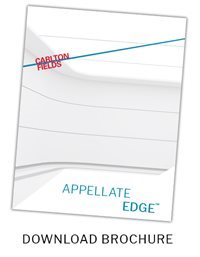
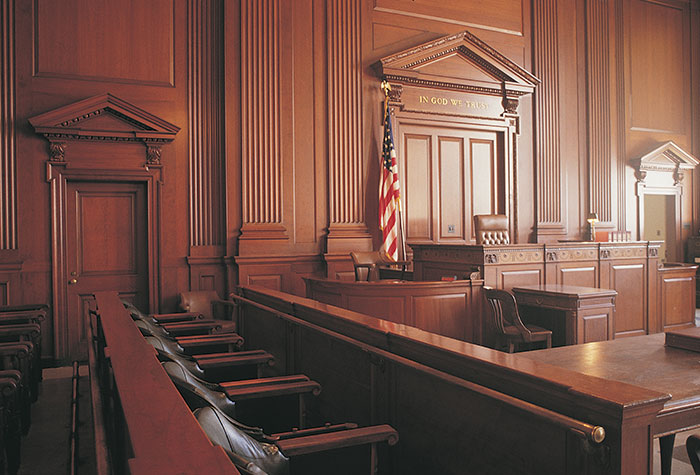
Amicus Briefs
Carlton Fields’ national Appellate Practice and Trial Support Group has extensive experience representing large companies, associations, and trade groups as amicus curiae in cases involving a multitude of issues affecting their interests. Through our extensive experience in the appellate courts, we have developed a command of strategies and techniques that allow us to present effective arguments as amici that grab the attention of appellate judges by providing insight on issues that cannot be provided in the merits briefing due, for instance, to limitations caused by the record on appeal.
Our group includes lawyers who have briefed and argued cases before the U.S. Supreme Court, every federal appeals court, and in the state courts of more than 30 states. It includes former law clerks from numerous federal and state appellate courts, including the U.S. Supreme Court and the Florida Supreme Court; a former judge from Florida’s district courts of appeal; a former deputy solicitor general of Florida; and two fellows of the American Academy of Appellate Lawyers, an invitation-only national organization.
Representative Amicus Curiae Briefs
Our appellate lawyers continue authoring amicus briefs in important appeals.
In Securities and Exchange Commission v. Romeril, No. 19-4197, we filed an amicus curiae brief in the Second Circuit Court of Appeals on behalf of Americans for Prosperity Foundation, in support of appellant Barry D. Romeril. Our brief advanced a constitutional challenge, on First Amendment grounds, to the SEC’s “gag order” rule prohibiting settling defendants from speaking about the SEC’s conduct or misstatements about the settled case. AFP Foundation is a nonprofit dedicated to educating Americans to be advocates of a free and open society based on separation of powers and a constitutionally limited government, including a limited administration state.
In Worley v. Citrus County Fair Association Inc., No. 5D19-2092, we filed an amicus curiae brief in Florida’s Fifth District Court of Appeal on behalf of the Florida Federation of Fairs and Livestock Shows Inc., regarding the application of sovereign immunity to Florida fair associations. FFF is a trade association representing Florida’s many fair associations.
In Keyes Co. v. Lesnik, No. 4D19-3340, we filed an amicus curiae brief in Florida’s Fourth District Court of Appeal on behalf of the Florida Association of Realtors d/b/a Florida Realtors regarding escrow agents’ liability when funds deposited in connection with a real property sale fail to clear and the sale never closes. Florida Realtors is Florida’s largest trade organization, with approximately 195,000 members.
Our attorneys have filed amicus curiae briefs in other matters, including:
- Fla. Dep’t of Transp. v. Schwefringhaus, 188 So. 3d 840 (Fla. 2016). Represented industry association in action involving whether state Department of Transportation was bound by railroad crossing agreement under which it received a revocable license to use land
- McCaffree Fin. Corp. v. Principal Life Ins. Co., 811 F.3d 998 (8th Cir. 2016). Represented industry group in support order granting motion to dismiss in ERISA class action involving allegedly excessive management fees charged by retirement plan service provider.
- Gainesville Woman Care, LLC v. State of Fla., No. SC16-381 (Fla.). Represented Florida Right to Life on the constitutionality of a 24-hour waiting period before terminating a pregnancy.
- Mirzataheri v. FM E. Developers, LLC, 193 So. 3d 19 (Fla. 3d DCA 2016). Represented trade association in action involving whether homestead property can be the subject of an action for specific performance.
- Ober v. Town of Lauderdale-By-The-Sea, No. 4D14-4597 (Fla. 4th DCA). Representing trade association in action involving rights of individuals who purchase a home at a judicial sale.
- Rothstein v. Balboa Ins. Co., 794 F.3d 256 (2d Cir. 2015). Represented American Security Insurance Co. on application of the filed-rate doctrine to lender-placed insurance claims.
- Rochow v. Life Ins. Co. of N. Am., 780 F.3d 364 (6th Cir. 2015). Represented industry groups and the U.S. Chamber of Commerce in action involving damages available to individuals receiving ERISA benefits.
- Sells v. CSX Transp., 170 So. 3d 27 (Fla. 1st DCA 2015). Represented industry association in action involving whether railroad had duty to equip trains with automated external defibrillators in anticipation of the possibility that employees might suffer cardiac arrests.
- Wollschlaeger v. Governor of Fla., 760 F.3d 1195 (11th Cir. 2014), opinion vacated and superseded on reh'g, 797 F.3d 859 (11th Cir. 2015), opinion vacated and superseded on reh'g sub nom. Wollschlaeger v. Governor of the State of Fla., 814 F.3d 1159 (11th Cir. 2015), reh'g en banc granted, opinion vacated sub nom. Wollschlaeger v. Governor of Fla., 649 F. App'x 647 (11th Cir. 2016), and on reh'g en banc sub nom. Wollschlaeger v. Governor of Fla., 848 F.3d 1293 (11th Cir. 2017). Represented American Bar Association in First Amendment challenge to the right of a regulated medical professional to engage in gun safety counseling with patients.
- Merrimon v. Unum Life Ins. Co. of Am., 758 F.3d 46 (1st Cir. 2014). ERISA claims involving life insurer’s use of retained asset accounts in connection with paying benefits.
- Fridman v. Safeco Ins. Co. of Ill., No. SC13-1607 (Fla.). Represented industry associations on issue whether the district court correctly found that in an action for uninsured motorist benefits, an insurer’s payment of policy limits and confession of judgment fully resolves the substantive issues framed by the pleadings, rendering the issues moot and requiring dismissal of the action.
- Heco v. Johnson Controls, Inc., No. 2013-473, Vermont Supreme Court. Representing Product Liability Advisory Council advocating the admission of evidence the plaintiff was not wearing a seat belt in automotive product liability actions and that the trial court correctly followed Vermont precedent and the vast majority of U.S. courts’ holdings.
- Estate of McCall v. United States, 145 So. 3d 894 (Fla. 2014). Represented large corporation in action challenging the constitutionality of statutory cap on noneconomic damages.
- Raymond James Fin. Servs., Inc. v. Phillips, 162 So. 3d 186 (Fla. 2013). Represented Florida Association of Realtors in connection with whether statutes of limitations can be raised as defenses in arbitration proceedings.
- Leimkuehler v. Am. United Life Ins. Co., 713 F.3d 905 (7th Cir. 2013). Represented industry group in class action involving alleged revenue sharing by retirement plan service provider.
- Kolbe v. BAC Home Loans Servicing, LP, 738 F.3d 432 (1st Cir. 2013). Represented industry group in appeal involving a challenge to lender-placed flood insurance.
- Edmonson v. Lincoln Nat’l Life Ins. Co., 725 F.3d 406 (3d Cir. 2013). Represented industry group in ERISA class action involving group life insurer’s use of retained asset accounts to pay life insurance benefits.
- Hoover v. Maxum Indem. Co., 730 S.E.2d 413 (Ga. 2012). Represented the Georgia Defense Lawyers Association, an insurance defense oriented industry group, in authority an amicus brief in support of a motion for reconsideration.
- Trafalgar at Greenacres, Ltd. v. Zurich Am. Ins. Co., 100 So. 3d 1155 (Fla. 4th DCA 2012). Represented insurance company and trade group in action regarding insurance bad faith.
- Nationwide Life Ins. Co. v. Haddock, 460 F. App’x 26 (2d Cir. 2012). Represented industry group regarding the district court’s order certifying nationwide plan trustee class under Rule 23(b)(2) in ERISA litigation involving alleged “revenue sharing” fees received by 401(k) retirement plan service provider.
- Curtis v. N. Life Ins. Co., No. 82582-3, Washington State Supreme Court. Amicus brief filed on behalf of the American Council of Life Insurers (ACLI).
- Sorrell v. IMS Health, Inc., 564 U.S. 552 (2011). Amicus brief filed on behalf of TechFreedom.
- Otte v. Life Ins. Co. of N. Am., No. 11-1973 (1st Cir. 2011). Represented industry group in appeal relating to district court's class certification order in ERISA litigation involving a group life insurer's use of retained asset accounts to pay life insurance benefits.
- Genovese v. Provident Life & Accident Ins. Co., 74 So. 3d 1064 (Fla. 2011); Aircraft Holdings, LLC v. X.L. Specialty Ins. Co., No. SC06-1303 (Fla.) (voluntarily dismissed after full briefing). Drafted an amicus brief on behalf of insurance companies supporting position that insurers should retain their right to assert attorney-client privilege with regard to confidential communications with their attorneys concerning the handling of and litigation over contractual disputes that arise when the insureds later file an action accusing the insurers of bad faith.
- Raymond James Fin. Servs., Inc. v. Phillips, 126 So. 3d 186 (Fla. 2013). Represented trade association in action involving whether statute of limitations can be raised as a defense in arbitration proceedings.
- Healthcare Strategies Inc. v. ING Life Ins. & Annuity Co., No. 12-4092 (2d Cir.). Represented industry group regarding 401(k) retirement plan service provider’s petition for interlocutory appellate review, pursuant to Federal Rule of Civil Procedure 23(f) of the district court’s order certifying nationwide plan administrator class under Rule 23(b)(3) in ERISA "excessive fee” litigation.
- Masone v. City of Aventura, Florida Supreme Court. Represented industry group in action addressing the authority to implement intersection safety cameras.
- Travis v. Am. Honda Motor Co., Inc., No. 2010 CA 2935 (Fla. Cir. Ct.). Represented industry group in action involving whether the Florida Legislature had the authority to overrule what it found to be an unfair, inequitable, and incorrect decision of the Florida Supreme Court.
- Stop the Beach Renourishment, Inc. v. Fla. Dep’t of Envtl. Prot., 560 U.S. 702 (2010). Represented industry group in action alleging the state’s beach renourishment project was an unconstitutional taking.
- United States ex rel. Loughren v. Unum Grp., 613 F.3d 300 (1st Cir. 2010). Represented industry and employer groups in action under federal civil False Claims Act involving private long-term disability insurance industry practices relating to insureds’ application for Social Security Disability Insurance benefits.
- Peters v. Gen. Motors Corp., No. SC 87559, Missouri Supreme Court. Representing Product Liability Advisory Council regarding imposition of punitive damages and the admissibility of evidence of other incidents.
- Metro-Goldwyn-Mayer Studios, Inc. v. Grokster, Ltd., 545 U.S. 913 (2005). Drafted amicus brief on merits of engineering society in high-profile copyright case, advocating position ultimately adopted by Court.
- Peters v. Gen. Motors Corp., No. SC 87559, Missouri Supreme Court. Representing Product Liability Advisory Council regarding imposition of punitive damages and the admissibility of evidence of other incidents.
- D’Angelo v. Fitzmaurice, 863 So. 2d 311 (Fla. 2003). Drafted an amicus brief on behalf of the Florida Defense Lawyers Association regarding application of set-off and apportionment rules in medical malpractice action.
- Festo Corp. v. Shoketsu Kinzoku Kogyo Kabushiki Co., 535 U.S. 722 (2002). Drafted amicus brief on merits for engineering society in high-profile patent case, advocating position ultimately adopted by the Court.
- Jackson v. Gen. Motors Corp., No. M2001-000433-SC-R23-CQ, Tennessee Supreme Court Appeal. Representing Product Liability Advisory Council regarding the proper test for a design defect in product liability cases.
Judges/Clerkships
Our appellate team consists of a former appellate judge and former law clerks from state and federal appellate courts, including the U.S. Supreme Court.
 |
Matthew J. Conigliaro – Law Clerk to the Honorable Jacqueline R. Griffin, Florida Fifth District Court of Appeal (1995–1997)
Nathaniel G. Foell – Law Clerk to the Honorable David F. Hamilton, U.S. Court of Appeals for the Seventh Circuit (2014–2015)
David A. Karp – Law Clerk to the Honorable Susan C. Bucklew, U.S. District Court for the Middle District of Florida (2009–2010)
Joseph H. Lang Jr. – Law Clerk to the Honorable Benjamin F. Overton, Florida Supreme Court (1995–1997)
Dean A. Morande – Law Clerk to the Honorable Edward E. Carnes, U.S. Court of Appeals for the Eleventh Circuit (2004–2005)
Paul Nettleton – Law Clerk to the Honorable Joseph Nesbitt, Florida Third District Court of Appeal (1984–1986)
Rachel Oostendorp – Law Clerk to the Honorable Adalberto Jordan, U.S. Court of Appeals for the Eleventh Circuit (2016–2017); Law Clerk to the Honorable Beth Bloom, U.S. District Court for the Southern District of Florida (2015–2016)
Gary L. Sasso – Law Clerk to the Honorable Byron R. White, U.S. Supreme Court (1978–1979); Law Clerk to the Honorable Spottswood W. Robinson III, U.S. Court of Appeals for the District of Columbia Circuit (1977–1978)
Peter D. Webster – Law Clerk to the Honorable Gerald Bard Tjoflat, U.S. District Court for the Middle District of Florida (1974–1975)
Steven Weisburd – Law Clerk to the Honorable Alfred T. Goodwin, U.S. Court of Appeals for the Ninth Circuit
Roben S. West – Law Clerk to the Honorable Charles R. Wilson, U.S. Court of Appeals for the Eleventh Circuit (2016–2018)
Michael L. Yaeger – Law Clerk to the Honorable Samuel A. Alito Jr., U.S. Court of Appeals for the Third Circuit (2004–2005)




